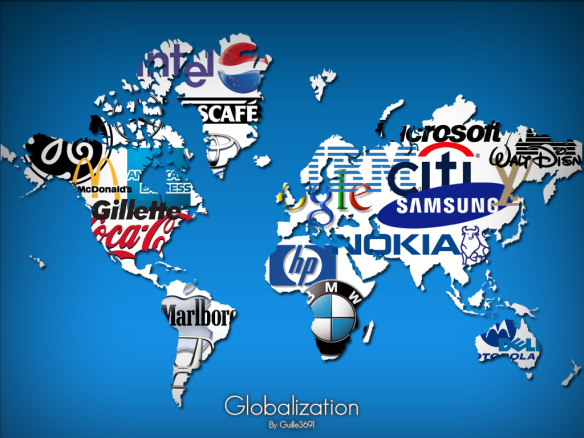Corporate leaders are the dominant leaders of globalization; their companies and brands have become international and are now apart of the third world society. Since these companies are so powerful, they have become part of the lifestyle in third world nations. For example, “85% of movies seen in the world are made in Hollywood, whereas on the African continent, an average of 42 films are produced a year. In Africa, Chile and Costa Rica 95% of the films viewed are imported from the USA” (Ornek, Yususf). This quote explains how cultural films of a country are not viewed as often as an American film, which is a disadvantage of globalization. While the nations of the world are now interconnected with each other, we are all becoming a global culture – the culture of developed countries.
Now that the world is reaching homogenization, it will be difficult for cultural products to compete in the world market. Merchandise produced by corporate leaders have dominated the worlds market, making it almost impossible for peripheral countries to compete (Ornek, Yusuf). The most wanted products in the world market are produced by corporate leaders, which allows them to gain the power. “According to the UNDP Human Development Report published in 1999, two-thirds of the world’s population are unable to benefit from global economic growth, based on international trade and developing technologies, and do not have the opportunity to become part of an informed society” (Ornek, Yusuf). The informed society is the society of developing countries, which is the polar opposite of the society in third world nations. This is why it is difficult for peripheral countries to compete with core-driving nations.
Cultural identity is becoming an issue in developing and non-developing countries because the culture of core-driving countries is taking over. For example, McDonald’s has expanded internationally, and can be found in non-developed nations. This demonstrates how western culture is dominating. If cultural traditions begin to break away in a country, and are replaced with western traditions and products, then we are approaching a global culture (Ornek, Yusuf). Globalization has become successful because of the diverse amount of products and services that appeal to consumers. However, if the world reaches a global culture, then there will not be any diversity in products and as a result it will impact the economy. Thus, globalization is a detriment because it diminishes cultures of different countries.

